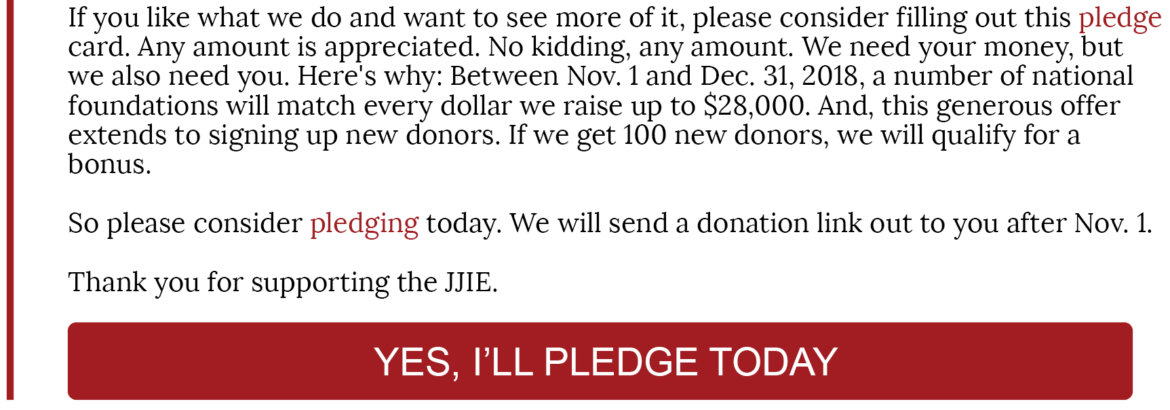![]() The Trump administration removed the “Girls at Risk” page from the Office of Juvenile Justice and Delinquency Prevention website, the Sunlight Foundation reported on Oct. 4. It included information about the work of the OJJDP-funded National Girls Initiative (NGI), which has been led in cooperation with OJJDP by the organization I direct, National Crittenton.
The Trump administration removed the “Girls at Risk” page from the Office of Juvenile Justice and Delinquency Prevention website, the Sunlight Foundation reported on Oct. 4. It included information about the work of the OJJDP-funded National Girls Initiative (NGI), which has been led in cooperation with OJJDP by the organization I direct, National Crittenton.

Jeannette Pai-Espinosa
Sunlight Foundation discovered the page had been taken down by July — well before the deadline for OJJDP to offer us the third-year renewal of our NGI cooperative agreement. Receiving no formal notice, our agreement simply ended on Sept. 30, leaving us to conclude that the National Girls Initiative would not be continued.
National Crittenton has served as the content expert for NGI since 2013 and took over leadership in 2016. We began this work under the Obama administration and helped develop the 2015 policy guidance “Girls and the Juvenile Justice System,” which called for the juvenile justice system to understand the drivers of girls into the system; to reduce the impact of intersectional disparities on girls in and at risk of entering the system, and to reduce reliance on confinement for girls who pose no risk to public safety. The guidance served to support states in understanding and better addressing the needs of girls.
This policy guidance, identifying improving responses to girls as “an urgent need,” was taken down by this current administration for review before or by February. But months later it has neither been rescinded nor reinstated. No official decision on its status has been announced.
Just this week we discovered that the literature review “Specialized Responses for Girls in the Juvenile Justice System,” which was posted on the OJJDP website in June, has been removed. Perhaps it was moved, or is under review, but at this point it is simply no longer available to the field.
States ready for reform of girls’ treatment
The uncertainty of OJJDP’s approach to gender-affirming reform comes at the same time as a pronounced shift in the agency’s priorities. Ironically, it also coincides with increased momentum from states interested in changing policies and practices regarding the confinement of girls. It is disheartening that the closure of NGI is taking place at the same time the field is most engaged and interested in reform focused on girls.
In our National Girls Initiative work we’ve seen that counties and states are increasingly recognizing that the vast majority of girls entering the justice system cause little if any risk to public safety; and that, in many cases, girls are criminalized for their responses to violence and trauma. As a result, states are interested in working to align their juvenile justice systems with the latest evidence-based information and common-sense reforms, reducing reliance on secure placement and increasing community-based approaches that are gender and culturally responsive, trauma-informed and developmentally appropriate.
We’ve provided training and technical assistance to 11 states just in the past year and continue to receive requests for support. We’ve convened roundtables on the specific needs of Native American/Alaskan Native and Native Hawaiian girls in the justice system and on the unintended consequences of mandatory and pro-arrest domestic violence policies pushing girls into the system. And we’ve undertaken research focused on improving what we know as a field about what works, including emerging areas of system interest like specialty courts.
National Girls Initiative will continue through March with no additional funding; during that time we will work to provide as much support to the field as possible, including releasing tools and reports to support states and growing our resource hub to assist stakeholders in effectively addressing the needs of girls in, or at risk of entering, the juvenile justice system.
OJJDP may have ended the National Girls Initiative, but the work to advance system reforms that reduce reliance on confinement and provide community-based supports and services continues to gain momentum, driven by on-the-ground advocates and youth leaders as well as state and local system actors. National Crittenton intends to find a way to continue the critical work of ensuring that the momentum for justice reform for girls accelerates rather than dissipates.
We believe that private entities will step in to make sure this work continues. But it is still a devastating blow that the country’s leading juvenile justice office appears to be silent on the status of the girls’ policy guidance and on their commitment to justice reform for girls. As the saying goes, actions speak louder than words, and sometimes the loudest response is silence.
Jeannette Pai-Espinosa is the president of National Crittenton.

